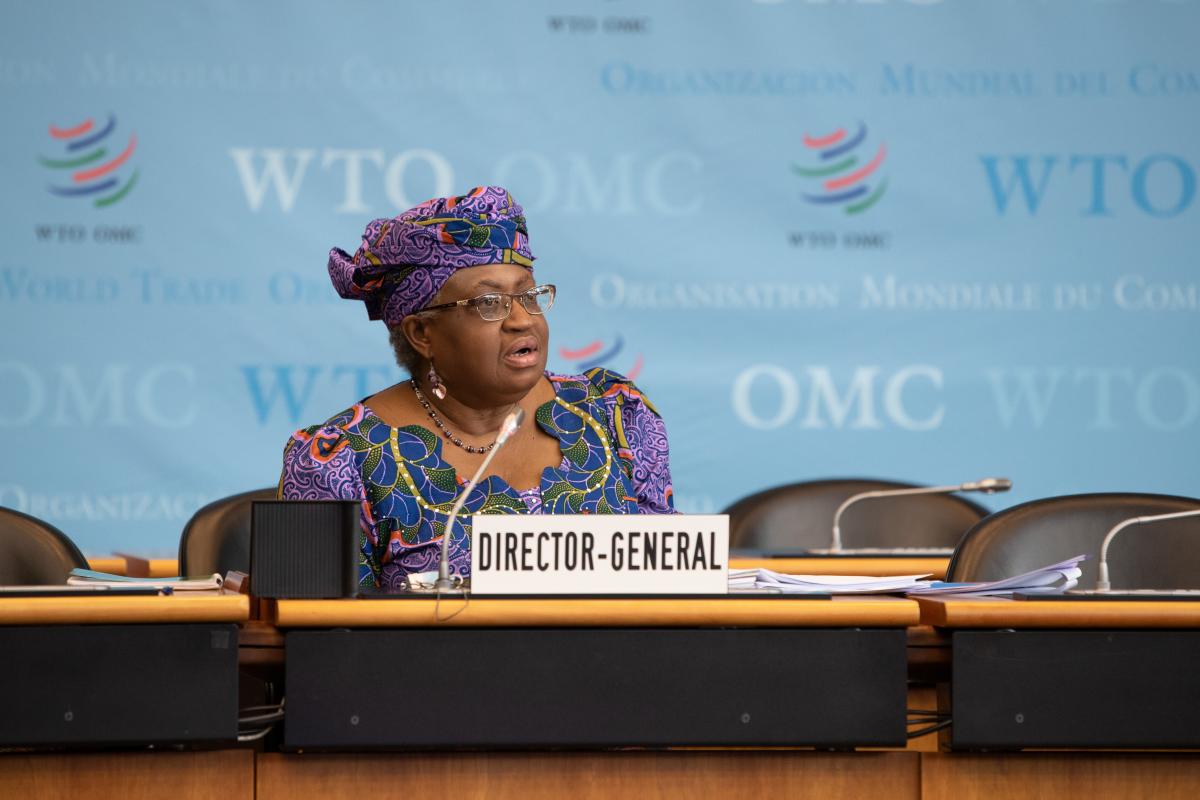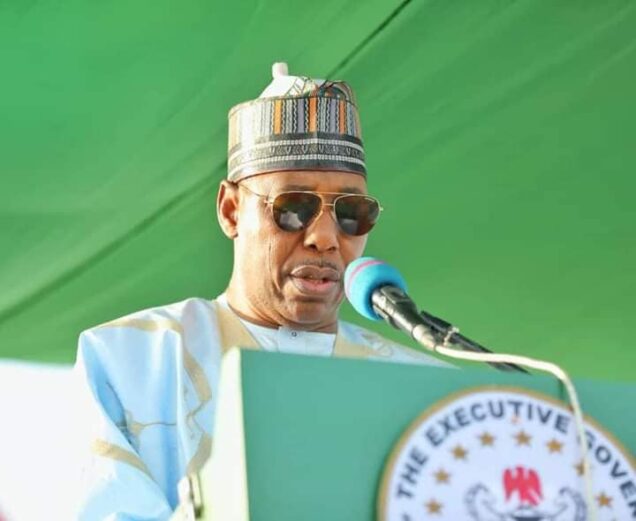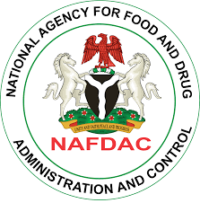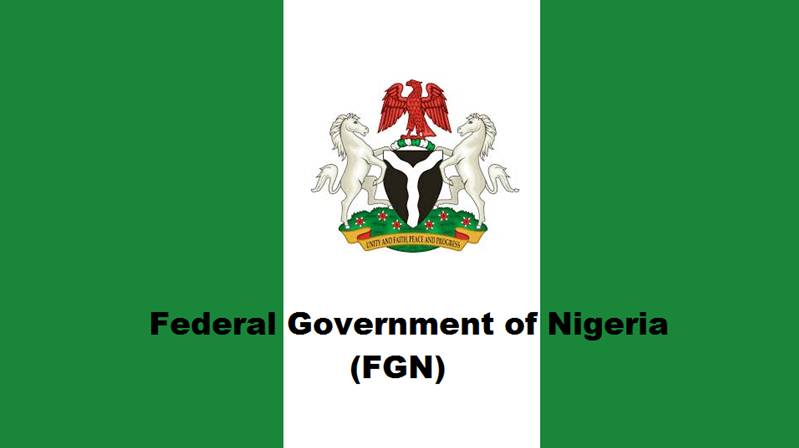Headlines
Global Food Crisis Could Last till 2024

By Derrick Bangura
The world’s food crisis could last until 2024 unless safe corridors are created to move Ukrainian food stocks currently blockaded by Russia, Director General of the World Trade Organisation (WTO), Dr. Ngozi Okonjo-Iweala, has warned.
Speaking at a press conference on policy outlook for trade and food at the on-going World Economic Forum (WEF) meeting in Davos, Switzerland, she explained: “The food crisis, if we don’t get these safe corridors out, is going to last another year or two, to be honest with you.”
According to her, the United Nations (UN) Secretary-General, Antonio Guterres was engaged with the issue.
“He formed a crisis group composed of key UN agencies and related agencies. WTO is part of it, to look at the food, energy and finance aspects of the crisis.
“One issue is the creation of safe corridors and looking at alternative means to evacuate Ukrainian grain. Rail could take one or two million tonnes, but it’s very difficult so we really need the Black Sea.”
“I know that some work is going behind (the scenes) to see if we can get a solution. So the secretary general is involved,” the WTO DG stressed.
Trade, she pointed out, was part of the solutions to the simultaneous crises gripping the world, adding that the world faces the security crisis, the pandemic, the climate crisis, food crisis, all at same time.
“They have one thing in common — one country can’t solve them, needs multinational approach,” she further said.
Okonjo-Iweala explained that the WTO recently revised down its projections for trade growth this year from 4.7 per cent to three per cent.
“There are lots of uncertainties – many on the downside. There are lots of downside risks. If you don’t have trade, you can’t move food to where it is needed, she pointed out.”
Meanwhile, pharmaceutical giant, Pfizer has announced that it would supply all its current and future patent-protected medicines and vaccines on a not-for-profit basis to 45 lower-income countries, saying it was talking to other big drug-makers about similar steps.
Announcing an “accord for a healthier world” at the WEF annual meeting in Davos, the New York-based pharma firm pledged to provide all its products that are available in the US and Europe on a cost basis to 1.2 billion people in all 27 low-income countries such as Afghanistan and Ethiopia, plus 18 lower-middle-income countries including Ghana.
Pfizer had previously been accused of, “pandemic profiteering” over the huge profits it has generated from coronavirus-related medicines over the past two years. It made almost $15 billion in sales in only three months from the Covid-19 vaccine it developed with Germany’s BioNTech and its new Covid pill for people who are at high risk of severe disease.
“We are living in a time where science is increasingly demonstrating the ability to take on the world’s most devastating diseases,” Albert Bourla, Pfizer’s chief executive, said.
“Unfortunately, there exists a tremendous health equity gap in our world that determines which of us can use these innovations and which of us cannot.”
He told the WEF gathering in Switzerland: “I’m certain that the other pharmaceutical companies will follow. I’ve spoken to several of the CEOs and they want to be part of it.
“So medicines will be available I hope but it’s not going to be enough. We need to also work on the ground for diagnosis, treatments, and for that we need the help of WHO, Doctors without Borders and many other organisations.”
Jayasree Iyer, the chief executive of the Netherlands-based independent group Access to Medicine Foundation, said: “Based on our research, Pfizer’s commitment covers the right products by looking across the entire portfolio of patented products, the right countries by focusing on the poorest countries and the right partnerships by working with governments and international health organisations.
“But we need to see how it pans out; the commitment needs to move us forward, from vaccine to vaccination, from medicine to treatment.”
Elsewhere in Davos on Wednesday, a nurse from Liberia, George Poe Williams, staged a, “clap for pharma profits” in protest at the profits made by drugmakers, some of which, including Pfizer, refuse to waive patents on Covid-19 vaccines.
Williams said: “If I wanted to earn what Pfizer CEO Albert Bourla made last year, I would have to work every single day until 6100 AD. But what makes me really furious is that Bourla and many of his billionaire buddies here at WEF are doing all they can to block our demands for a patent waiver – just so they can make even more money.”
Under its new initiative, Pfizer is working closely with healthcare officials in Rwanda, Ghana, Malawi, Senegal and Uganda to provide expertise to support diagnosis, education and training of doctors and nurses and improvements to infrastructure to ensure all medicines and vaccines can reach those in need.
Pfizer is working with the Bill & Melinda Gates Foundation to develop new products such as vaccines to prevent the deadly Group B streptococcus, and for respiratory syncytial virus, which can be serious for children and older people.
Also on the panel, Bill Gates said: “This type of accord is a very good model, it’s going to get medicines out … Global health equity has made progress; we saw with Covid, we’re not there.”
Headlines
Noble Ladies Champion Women’s Financial Independence at Grand Inauguration in Abuja

Women from diverse backgrounds across Nigeria and beyond gathered at the Art and Culture Auditorium, Abuja, for the inauguration and convention of the Noble Ladies Association. The event, led by the association’s Founder and “visionary and polished Queen Mother,” Mrs. Margaret Chigozie Mkpuma, was a colourful display of feminine elegance, empowerment, and ambition.
The highly anticipated gathering, attended by over 700 members and counting, reflected the association’s mission to help women realise their potential while shifting mindsets away from dependency and over-glamorization of the ‘white collar job.’ According to the group, progress can be better achieved through innovation and creativity. “When a woman is able to earn and blossom on her own she has no reason to look at herself as a second fiddle,” the association stated.
One of the association’s standout initiatives is its women-only investment platform, which currently offers a minimum entry of ₦100,000 with a return of ₦130,000 over 30 days—an interest rate of 30 percent. Some members invest as much as ₦1 million, enjoying the same return rate. Mrs. Mkpuma explained that the scheme focuses on women because “women bear the greater brunt of poverty” and the platform seeks “to offer equity in the absence of economic equality.”
Education is also central to the Noble Ladies’ mission, regardless of age. Their mantra, “start again from where you stopped,” encourages women to return to school or upgrade their skills at any stage in life. The association believes that financial stability is vital in protecting women from cultural practices that dispossess widows of their late husbands’ assets, while also enabling them to raise morally and socially grounded families.
Founded on the vision of enhancing women’s skills and achieving financial stability, the association rests on a value system that discourages pity and promotes purpose. “You have a purpose and you build on that purpose to achieve great potentials and emancipation,” Mrs. Mkpuma said.
A criminologist by training and entrepreneur by practice, she cautions against idleness while waiting for formal employment. “There are billions in the informal and non-formal sectors waiting to be made,” she said, rejecting the “new normal of begging” and urging people to “be more introspective to find their purpose in life and hold on to it.”
Mrs. Mkpuma’s management style keeps members actively engaged, focusing on vocational skills and training to prepare them for competitive markets. She is exploring “innovative integration of uncommon technologies” and is already in talks with international franchises to invest in Nigeria, with Noble Ladies as first beneficiaries.
The association’s core values include mutual respect, innovation, forward-thinking, equal opportunity, and financial emancipation. With plans underway to establish a secretariat in the heart of Abuja, the group aims to expand its impact.
The event drew high-profile guests, including former Inspector General of Police, Mike Okiro, and a host of VIPs, marking a significant milestone in the association’s drive for women’s empowerment.
Headlines
NEPZA, FCT agree to create world-class FTZ environment

The Nigeria Export Processing Zones Authority (NEPZA) has stepped in to resolve the dispute between the Federal Capital Territory Administration and the Abuja Technology Village (ATV), a licensed Free Trade Zone, over the potential revocation of the zone’s land title.
Dr. Olufemi Ogunyemi, the Managing Director of NEPZA, urged ATV operators and investors to withdraw the lawsuit filed against the FCT administration immediately to facilitate a roundtable negotiation.
Dr. Ogunyemi delivered the charge during a courtesy visit to the Minister of the Federal Capital Territory, Barrister Nyesom Wike, on Thursday in Abuja.
You will recall that the ATV operators responded to the revocation notice issued by the FCT administration with a lawsuit.
Dr. Ogunyemi stated that the continued support for the growth of the Free Trade Zones Scheme would benefit the nation’s economy and the FCT’s development, emphasizing that the FCT administration recognized the scheme’s potential to accelerate industrialisation.
Dr. Ogunyemi, also the Chief Executive Officer of NEPZA, expressed his delight at the steps taken by the FCT minister to expand the economic frontier of the FCT through the proposed Abuja City Walk (ACW) project.
Dr. Ogunyemi further explained that the Authority was preparing to assess all the 63 licensed Free Trade Zones across the country with the view to vetting their functionality and contributions to the nation’s Foreign Direct Investment and export drives.
“I have come to discuss with His Excellency, the Minister of the Federal Capital Territory on the importance of supporting the ATV to succeed while also promoting the development of the Abuja City Walk project. We must work together to achieve this for the good of our nation,” he said.
On his part, the FCT Minister reiterated his unflinching determination to work towards President Bola Ahmed Tinubu’s Renewed Hope Agenda by bringing FDI to the FCT.
“We must fulfil Mr. President’s promises regarding industrialization, trade, and investment. In this context, the FCT will collaborate with NEPZA to review the future of ATV, a zone that was sponsored and supported by the FCT administration,” Wike said.
Barrister Wike also said that efforts were underway to fast-track the industrialisation process of the territory with the construction of the Abuja City Walk.
The minister further said the Abuja City Walk project was planned to cover over 200 hectares in the Abuja Technology Village corridor along Airport Road.
According to him, the business ecosystem aimed to create a lively, mixed-use urban center with residential, commercial, retail, hospitality, medical, and institutional facilities.
He added that the ACW would turn out to be a high-definition and world-class project that would give this administration’s Renewed Hope Agenda true meaning in the North-Central Region of the country.
Barrister Wike also indicated his continued pursuit of land and property owners who failed to fulfil their obligations to the FCT in his determination to develop the territory.
Headlines
Benue IDPs block highway, demand return to ancestral homes

Vehicular movement along the Yelwata axis of the Benue–Nasarawa highway was brought to a standstill on Wednesday as Internally Displaced Persons, IDPs, staged a protest, demanding immediate return to their ancestral homes.
The protesters, believed to be victims of persistent attacks by suspected herdsmen, blocked both lanes of the busy highway for several hours, chanting “We want to go back home”.
The protest caused disruption, leaving hundreds of motorists and passengers stranded.
Eyewitnesses said the displaced persons, many of whom have spent years in overcrowded IDP camps, are expressing deep frustration over the government’s delay in restoring security to their communities.
“We have suffered enough. We want to return to our homes and farms,” one of the protesters told reporters at the scene.
Security personnel were reportedly deployed to monitor the situation and prevent any escalation, though tensions remained high as of press time.
Efforts to reach the Benue State Emergency Management Agency, SEMA, and other relevant authorities for comment were unsuccessful.
-

 Headlines4 years ago
Headlines4 years agoFacebook, Instagram Temporarily Allow Posts on Ukraine War Calling for Violence Against Invading Russians or Putin’s Death
-

 Headlines4 years ago
Headlines4 years agoNigeria, Other West African Countries Facing Worst Food Crisis in 10 Years, Aid Groups Say
-

 Foreign4 years ago
Foreign4 years agoNew York Consulate installs machines for 10-year passport
-

 News1 year ago
News1 year agoZero Trust Architecture in a Remote World: Securing the New Normal
-

 Entertainment3 years ago
Entertainment3 years agoPhyna emerges winner of Big Brother Naija Season 7
-

 Headlines2 years ago
Headlines2 years agoNigeria Customs modernisation project to check extortion of traders
-

 Entertainment2 years ago
Entertainment2 years agoMovie download platform, Netnaija, announces closure
-

 Economy2 years ago
Economy2 years agoWe generated N30.2 bn revenue in three months – Kano NCS Comptroller















